Taking place on 29–30 October in Birmingham, UK, Lab Innovations will gather scientists, researchers, engineers, industry leaders and innovators to engage in two days of focused discussion, knowledge exchange and technical demonstration.
Lab Innovations has fast become the UK’s must-attend event for the entire laboratory industry. Supported by some of the UK’s top science institutions, it is a key event for powering the business of science.
The show floor is bursting with innovations from more than 160 leading scientific suppliers and manufacturers showcasing the latest laboratory developments and equipment. Exhibitors present the most cutting-edge technology applicable to a plethora of industries including life sciences, pharmaceuticals, academia, healthcare, chemical, food and drink, cleanroom and more.
Don’t miss out, register today
Lab Innovations | 29–30 October 2025 | NEC, Birmingham, UK
Meet with over 200 suppliers and network with over 4,500 lab professionals. Plus develop your lab processes with our free-to-attend conference programme.
Where can I col-LAB-orate?
Following their impressive debut in 2024, the Quality Infrastructure (QI) Forum and the Biotech Forum (sponsored by Scientific Bioprocessing), will return to Lab Innovations this year with renewed energy and purpose. They will join a lineup of free-to-attend programmes, including the Royal Society of Chemistry Theatre, the Future of Laboratories Stage (sponsored by My Green Lab), and the Live Lab. Together, these content stages create a dynamic arena for exploring the latest developments shaping the laboratory landscape.
Lab Innovations is important because lab technicians’ equipment is really the fundamental technology that allows us to do whatever we do.
Adam Rutherford, researcher and science communicator, University College London, UK
For professionals in the biotechnology sector, the Biotech Forum will once again serve as a focal point for in-depth discussions on industry trends and challenges. Topics will include biobanking and personalised medicine, clinical and medical laboratory skills, the evolving role of genomics, the integration of AI into biotech, and the drive for sustainability in drug development. Attendees can expect to hear from leading minds while also engaging directly with exhibitors.
Dr Adam Rutherford, researcher and science communicator at University College London, captured the spirit of the event when he said, “Lab Innovations is important because lab technicians’ equipment is really the fundamental technology that allows us to do whatever we do. It is innovations in technology that allow us to make new discoveries. The event is a cauldron for people to come together and look at what is being developed, for scientists to come and talk about ideas and how technological solutions can be applied to the problems we haven’t thought of yet.”
The QI Forum, powered by the UK Accreditation Service and the National Physical Laboratory will focus on how to maintain compliance with the highest and most up-to-date standards. Experts will share insight on mitigating supply chain risks, navigating the often-complex accreditation process, and exploring the diverse career opportunities available in quality assurance.
One of the things I’ve learned doing science is most of this is about meeting each other
Tom Whipple, science editor, The Times
In 2024, keynote speakers such as Ajay Desai, area team manager at the Department for Business and Trade, and Tom Whipple, science editor at The Times, praised the role of Lab Innovations in fostering connection and cooperation within the industry.
Whipple reflected, “One of the things I’ve learned doing science is most of this is about meeting each other. It’s about getting a sense of community, a sense of the fact that there are all these people around doing similar things, making contacts.” Desai added, “We have seen so many businesses out here that are innovating and looking to grow. At an exhibition like this, you see every facet of the supply chain. It is an area that a trader would be able to open their eyes to what else they could be doing.”
What will this year’s event address?
This year’s programme revolves around five central themes: AI and automation, biotechnology, sustainability, quality and compliance, and skills, alongside showcasing the very latest in science and innovation.
With the rise of AI and automation, the market for artificial intelligence alone is expected to grow at a compound annual growth rate of 35.9 per cent from 2025 to 2030 to reach USD 1,811.75 billion by 2030. Within the field of chemistry, AI has shown remarkable growth, particularly in the area of drug discovery.
Machine learning (ML) in drug discovery refers to the application of algorithmic models that can learn from large datasets to detect patterns, make predictions and guide decision-making throughout the drug development process. This technology accelerates early-stage research, enables the identification of novel drug candidates, strengthens target validation, optimises lead compounds and predicts toxicity and pharmacokinetics. By streamlining and enhancing each stage, ML reduces both the time and cost associated with research and development.
In biotechnology, while there have been some major breakthroughs, continued collaboration is essential to tackle the world’s most significant disease threats. HIV is a clear example of progress and perseverance. Three decades ago, a diagnosis came with little hope; today, it can be managed as a chronic condition thanks to advances in treatment.
William Freshwater, a long-term survivor and community advocate, recalled, “When I was first diagnosed in 1990, I had no hope, no medicine to take, and no chance to survive. I learned about an experimental study led by Jonas Salk and quickly enrolled. Being on a study gave me hope and gave me a chance to beat HIV. I owe my life to all those people who created, ran, and participated in studies that led to the creation of protease inhibitors that gave me a chance. I am now 68 years old and thriving! But I am not cured. We need to continue to study HIV and other diseases. We need hope. We need research. We need funding.”
Yet, while HIV treatment has advanced, ischaemic heart disease remains the world’s top killer, responsible for 13 per cent of total deaths in 2021. Since the year 2000, the disease has seen the largest increase in deaths globally, rising by 2.7 million to 9.1 million in that year alone. This stark reality underscores the urgency for ongoing medical research, innovation, and global collaboration.
Science and technology are driving forward a more sustainable world through developments in renewable energy, eco-friendly materials, and waste management innovations. Wind and solar power are now among the most cost-effective energy sources, while advancements in carbon capture, smart grids, vertical farming and biodegradable plastics highlight the diverse approaches to reducing environmental impact.
However, the laboratory sector itself generates significant waste. In the UK, research and healthcare laboratories produce over 150,000 tonnes of single-use plastic waste every year. Ongoing research into biodegradable lab consumables, such as compostable pipette tips, is vital to addressing this issue without compromising scientific performance or safety.
Maintaining quality assurance in a globalised supply chain is another challenge that demands attention. Many life sciences products, including pharmaceuticals and biologics, are sensitive to environmental conditions such as temperature, humidity and handling, and require stringent controls to remain safe and effective. Counterfeit products add further risk to patient safety, product reliability and public trust.
Zuhal Reed, Esq., risk management senior staff attorney at Medmarc, explained the complexities involved: “Sourcing high-quality biological material like nucleic acid, viral vectors used in gene therapy, cell lines, antibodies and enzymes, and producing them with consistent quality is difficult. With a global supply chain, it’s challenging to regularly audit suppliers. You must ensure that the quality is there. The materials must be transported in a way that keeps them safe and viable over a long journey.”
Who can I col-LAB-orate with?
This year’s speaker lineup is set to inspire and inform in equal measure. Science and natural history broadcaster Liz Bonnin and leading academic researcher Marc Reid will present at the Royal Society of Chemistry Theatre.
Responding directly to visitor feedback from 2024, more technical specialists will be available on-site to provide practical, real-world advice and help attendees translate innovation into their daily laboratory practices. The Sustainability Pitches, taking place on October 30, will highlight cutting-edge, lower-impact lab products, while the Lab Awards will recognise outstanding contributions across the sector.
Lab Innovations 2025 promises to be more than just an exhibition; it is a space where people, ideas and technologies converge to address today’s greatest scientific challenges.
Some of the biggest names in the industry will be present. Scientific Laboratory Supplies, the UK’s largest independent supplier of laboratory chemicals, will showcase a range of products, including the InnovaPrep Concentrating Pipette Select Automated Bio-Concentrator. The CP Select is designed to speed up and improve the efficiency of sample preparation for pathogen detection, with applications in recovering bacteria, parasites, moulds, fungal spores and fragments, whole cells, and viruses from large sample volumes. Visitors will be able to see it in action at stand K80.
SciMed will present their reaction calorimetry systems at stand G112, enabling researchers to study chemical reactions under process-like conditions, measure reaction heat and heat flow, and optimise reactions under precisely controlled settings. Alpha Laboratories will bring their LaboraTree scheme to stand C62, which turns used pipette tips into planted trees – over 200,000 trees have already been planted under this initiative.
Nippon Genetics will showcase multiple products including the FAS-X which uses blue/green LED technology, the safest illumination for gel documentation. By eliminating harmful UV exposure, it protects both your DNA and your team. Its wide excitation spectrum offers flexibility, making it compatible with a broad range of nucleic acid stains, protein stains and fluorescent proteins.
How can I col-LAB-orate?
Lab Innovations 2025 promises to be more than just an exhibition; it is a space where people, ideas and technologies converge to address today’s greatest scientific challenges. From AI breakthroughs to sustainable lab practices, from biotech’s fight against deadly diseases to safeguarding quality in a complex global supply chain, the event offers an unparalleled opportunity for professionals to connect, collaborate, and create the future of science together.
Join scientists, innovators and industry leaders tackling science’s biggest challenges — register today for two unmissable days at Lab Innovations 2025.
Don’t miss out, register today
Lab Innovations | 29–30 October 2025 | NEC, Birmingham, UK
Meet with over 200 suppliers and network with over 4,500 lab professionals. Plus develop your lab processes with our free-to-attend conference programme.
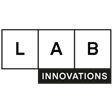

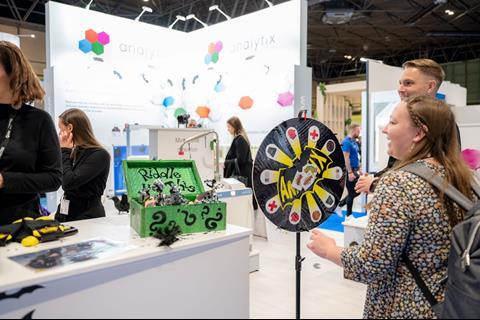
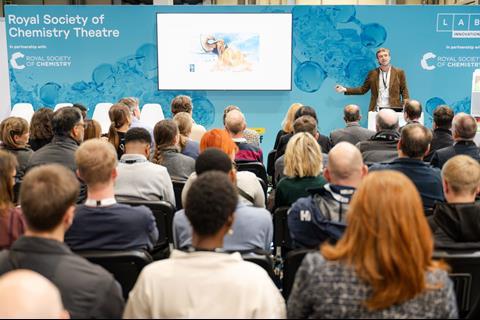











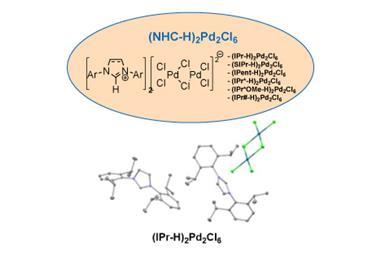
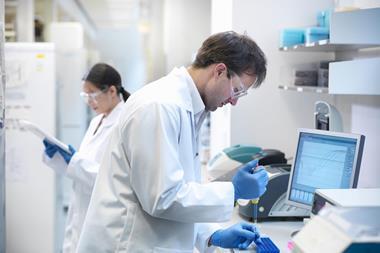


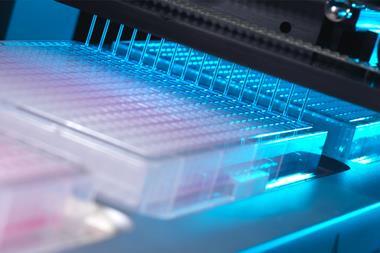
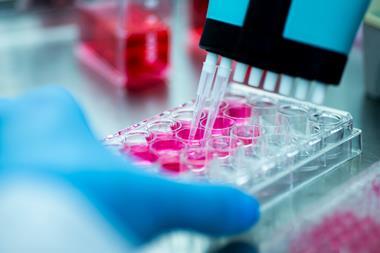
No comments yet